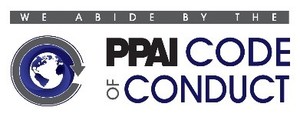Earth Day A Wisconsin Commitment
Earth Day, April 22, was founded in 1970 by Wisconsin’s then US Senator, Gaylord Nelson. The creation of Earth Day began as a response to his witnessing a devastating oil spill in Santa Barbara, California in 1969. At the time, it was the largest spill that had ever occurred in the US, decimating miles of coastline, islands and all life in the spill’s path.
Having grown up in Wisconsin’s pristine, natural beauty, Nelson was already passionate about the preserving the environment, and concerned about numerous other ecological threats to our planet. Pollution in our air, toxic sewage, industrial waste in our water, pesticides and poisons of the time were destroying the eco-system.
Nelson saw and understood the connection between the actions of individuals and industry and its effect on people, nature and the environment. Inspired by the tone of the era, one of protest and change, Nelson embraced this energy as an opportunity to create public and political awareness of ecological issues.
He thought it critical to educate the public, creating the concept of “teach-ins” at colleges and universities, coordinating the organization of protests, rallies and demonstrations for the betterment and protection of environment. Over 20 million people across the country agreed and were inspired to participate.
Nelson’s work led to the creation of the US Environmental Protection Agency, Clean Air Act of 1970, Clean Water Acts, and the Endangered Species Acts which we are struggling to preserve today. The movement has grown to a global observance with hundreds of countries and more than a billion people participating in ecological activism.
2020 will mark the 50th anniversary of Earth Day. The goals and progress of this observance is even more critical today. The dangers of climate change, the turning back of environmental protections and the depletion of natural resources needs our urgent attention and action. The creation and maintenance of sustainability, an ecological balance and harmony for future generations is imperative. Industry and individuals alike must take responsibility to insure a green, healthy, sustainable future for all.
Maple Ridge Farms embraces business practices that assure adherence to a set of corporately responsible principles that are environmentally sound, socially ethical, ecologically safe and promote sustainability. From recycling and using real dishes in the break room to the product line offered, Maple Ridge Farms is dedicated to green practices and the PPAI Code of Conduct.
Wooden and bamboo cutting boards, boxes, collectible gifts and accessories can be used for years, re-used, recycled and are made from sustainable timber. Less than 3% of any Maple Ridge product will end up in a landfill! This saves our forests, promotes sustaining a resource and is economically viable.
A slate cutting board, another sustainable product, with Maple Ridge Farm cheese and sausage, promotes our farmers and may last 100 years! A great choice, designed for less environmental impact.
Maple Ridge Farms uses chocolate that is “Rainforest Alliance” certified, which means they were produced in strict accordance with a set of standards by the Sustainable Agriculture Network (SAN). These standards promote environmental protections, fair and ethical working conditions and biodiversity conservation. These standards help our planet, our communities and protect our rainforests and wildlife.
Make the choice to give environmentally friendly gifts from Maple Ridge Farms for Earth Day and every day!





